Let’s open with a parable.
A king, powerful and wise, goes into his city, moves among his people, dressed as a commoner. He wishes to see how they regard him, truly, when they do not know who walks amongst them.
As for me, I mingle with such kings and queens each day, and I am one of them. We regard each other in our moments of weakness, awkwardness and poor decisions.
We see how we treat each other, when we do not know each other’s true natures.
We, who are bright as sons.
In Stories Something Goes Wrong
It's Monday morning here in the Pacific Northwest, and I’m back from a great story workshop. It was run by one Deb Williams from a group called The Flame. In it, she invited and guided, cajoled and encouraged people to tell stories from their own lives. Deb's been a stand-up comic for years, and that made for a direct and funny teaching style. We twenty or so participants each looked into our own lives, seeking moments wanting to be told.
Here’s how it went. Going around the group, everybody gave two or three life stories they might tell, as though pitching the group. Then, the group voted for the ones they wanted to hear.
‘Ah, that sounds juicy.’ ‘Oh… that's controversial. That's the one we’re not meant to hear. That's the one.’ ‘That's the one where things went wrong. Yes, that's the story I want to hear.’
It turns out that the most pleasant experiences in our lives are not necessarily the best stories. In a story, something goes wrong. There’s a twist. Something's learned, but the story is not necessarily about teaching.
Stepping Stones on the River of Life
Let's say you want to cross the river of your life. You can choose only five moments, five stepping stones. Which ones will you choose? Each combination of moments will give a different story, revealing your life in a unique way. You could choose five moments that led you to your current vocation, or five that lead you to your outlook on love.
The moments I chose were from my time in India. It’s a huge part of my story, but I haven't been quite sure how to integrate it into this next part of my life, here in the Pacific Northwest. I haven't figured out how to bring in those years of spiritual study and practice in another land into this time, with my explorations of genetic ancestry, and building relations with the people of these lands.
My story begins when I was twenty, and finishes at around forty. There are many different moments—stepping stones—that I could have chosen from my life, all of them truthful. It turns out that our lives aren’t just sequences of events; they’re more like fractals, with multifarious unfurling scenes hidden within them.
Tattva and Lila
Not everyone thinks about stories as patterns. A good story can be bawdy, gossipy, guttural, hilarious. My story thinking tends towards patterns. All that study in India got me thinking very philosophically. I’m drawn to sutras, codes, the essential parts from which all else can be understood. But other participants chose great stories about their pets and their grandchildren, about giving birth: mammalian moments.
In the path of Bhakti that I practiced for many years, there are twinned concepts called tattva and lila. The first could be called philosophy, or fundamental truth, whereas lila means pastimes—story. These terms are usually applied to the movements of divine beings, but I find them helpful for just about everything. Tattva is the truth of things concisely spoken, and lila is the stories playing out with those truths inside them. You might also say that tattva is ontology, the givens that a story assumes are true, and that lila is the tales that play out within that worldview.
These days, I find myself exploring the spaces between ontologies, like being a trader moving between cities. What are the stories of the in-between, that cross into a worldview, then cross into another? Is there an ontology of the in-between?
Hold that thought. I'd like to share with you the story that I told in this workshop, but it’s really best listened to, for this was an oral storytelling workshop. You’ll find the audio link above. Just skip forward to about 9:45.
Until the next,
happy creating
Theo





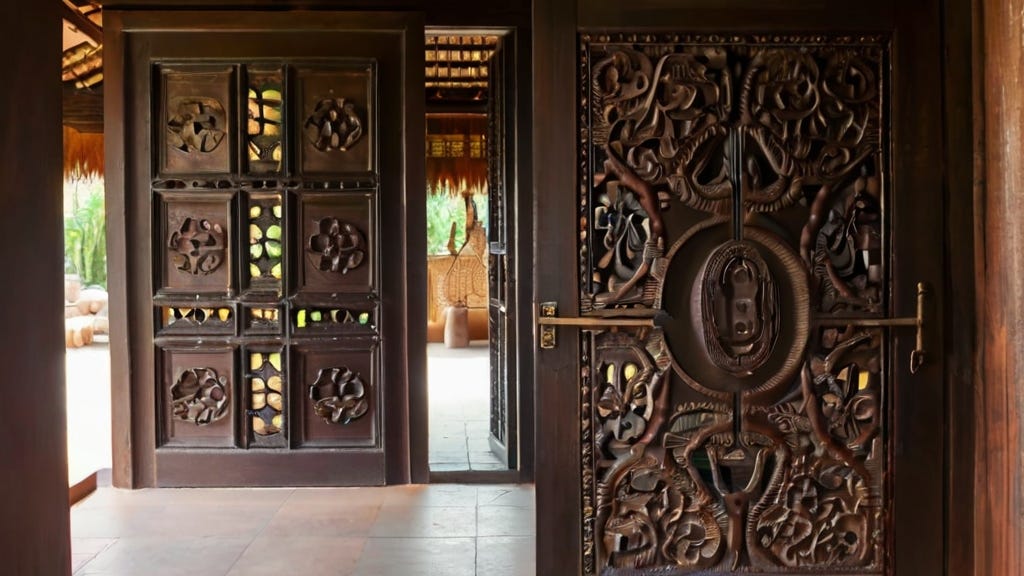

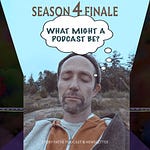

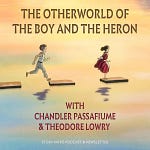



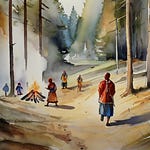
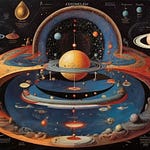
Finding Stories Within Your Life, and my tale of a Homecoming Monk Seeking Forgiveness